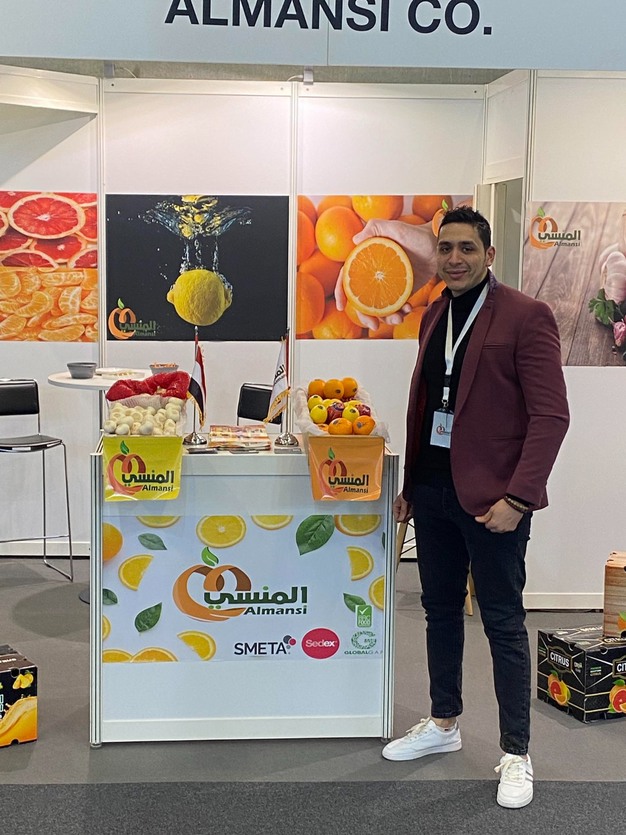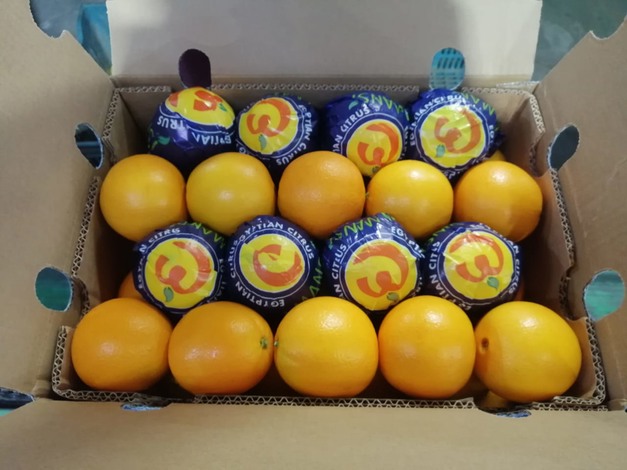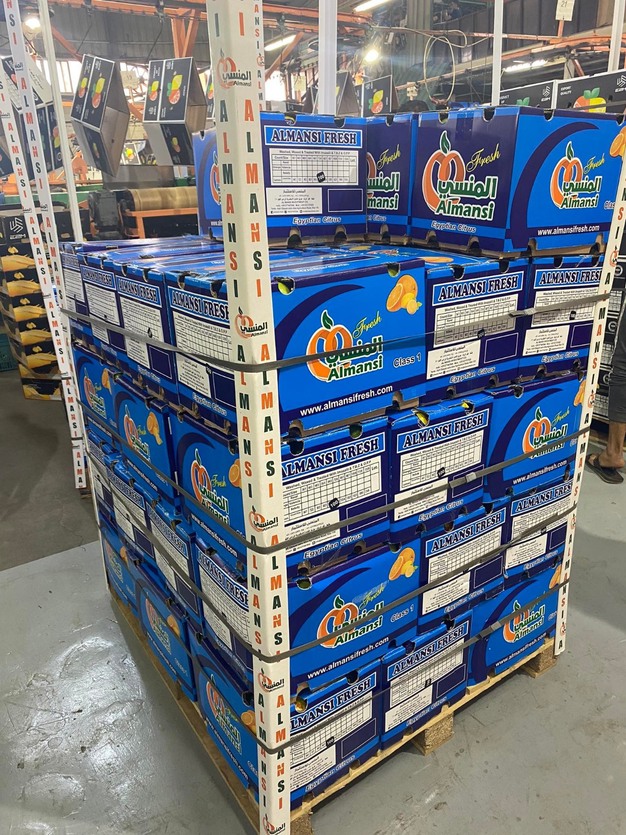Egypt is experiencing a booming citrus export season, with volumes surpassing last year's figures. This has brought significant financial benefits to the country in terms of foreign currency, with exports every year closer to the $1 billion USD mark. Muhammad Shaker, marketing manager of AlMansi, comments of the financial aspects of the season.
 According to industry figures provided by Shaker, Egypt has exported 1.5 million tons of various citrus varieties until now, 3-4 months before the end of the season, marking a 10-15% increase compared to the same period last year. "The country is projected to surpass the 2 million tons mark by the end of the season," a historical record according to Shaker, making the citrus industry an important source of foreign currency, approaching the 1 billion USD mark each year.
According to industry figures provided by Shaker, Egypt has exported 1.5 million tons of various citrus varieties until now, 3-4 months before the end of the season, marking a 10-15% increase compared to the same period last year. "The country is projected to surpass the 2 million tons mark by the end of the season," a historical record according to Shaker, making the citrus industry an important source of foreign currency, approaching the 1 billion USD mark each year.
According to the exporter, the demand this year was high and diverse, "Egyptian exports of citrus had several destinations, we started the season with Saudi Arabia, Jordan, and UAE, then came the period of oranges that conquered the world this year, with a very large demand from Bangladesh, India, Saudi Arabia, Jordan, Uruguay, as well as Muslim countries just before the Ramadan period. This was followed by a dense demand from Brazil and European countries, especially due to the low Spanish production, to the point that we exported to Spain. There is still a strong demand from European countries, such as Sweden, Spain, Italy, and Greece."

Most of the payments came in USD, and then in EUR. In most cases, according to Shaker, exporters did not face any payment difficulties, except for some harmful practices at the beginning of the season: "some companies were keen to export by commission, which is a serious mistake since the product is not valued as it deserves to be. We eventually managed to save the situation and impose payment methods among the all parties, in a spirit of mutual respect and trust, and also making them easier for our loyal customers. At Al Mansi, we are pleased to report that we have placed our trust in the right customers, and we have not had any unpaid bills this season."
The devaluation of the Egyptian pound also had a slight financial benefit for exporters, despite the confusion it created at the beginning of the year, says Shaker, "The devaluation has led to a state of ambiguity in the pricing policy, especially when many exporters have resorted to exchange foreign currencies in the black market, which has caused unnatural price differences between exporters. When we were able to find a balance and clarity after the devaluation, it was slightly in our favor. However, in the opposite direction, our costs of imported inputs and services also increased in local currency. We import top-grade packaging, coating, and sanitizing products from large international companies at substantial prices."

The citrus industry in Egypt employs a significant workforce of managers, workers, engineers, and administrators, etc... That is a huge wage bill that is paid in local currency, which tilts the balance of devaluation of the Egyptian pound in favor of the exporters.
Shaker explains, "In Egypt, there are no less than 2500 packing stations dedicated to citrus and citrus export companies, with an average workforce of 500 people per company, not counting the producers and other industries supported indirectly by citrus. The sector absorbs a large part of the labor force, and its impact on the reduction of unemployment is as important as the drainage of foreign currency. Certainly, the cost of labor of more than a million employees is paid in local currency, which adds to our competitiveness, but we must not forget that the devaluation is to the disadvantage of our society, in terms of purchasing power and inflation. The government is doing everything possible to curb inflation and to spin the wheel of the economy in this context of fierce economic crises.
 Better integration of the citrus industry in the national economy is then needed to take full advantage of its growth, Shaker adds, "the cost of inputs, packaging, coating, and sanitizing products, etc... reaches up to 75-80% of the production cost, and 50-60% of these materials are imported. These industries should be integrated into the Egyptian economy to take full advantage of the exchange rates. More integration of the citrus industry will enable the development of other supporting industries that benefit not only citrus but other agricultural sectors, and achieve a full value circle that includes a maximum of national resources."
Better integration of the citrus industry in the national economy is then needed to take full advantage of its growth, Shaker adds, "the cost of inputs, packaging, coating, and sanitizing products, etc... reaches up to 75-80% of the production cost, and 50-60% of these materials are imported. These industries should be integrated into the Egyptian economy to take full advantage of the exchange rates. More integration of the citrus industry will enable the development of other supporting industries that benefit not only citrus but other agricultural sectors, and achieve a full value circle that includes a maximum of national resources."
Some of these industries are already established in Egypt, says Shaker, but international competition is not currently in their favor: "The quality requirements increase their costs, and their prices become higher than the prices of imported products. When these companies will become more competitive, which I hope is soon, we will have no reservations about working with them. We already work with a limited number of Egyptian manufacturers for parts of our value chain, and are very satisfied with the quality they offer."
Shaker concludes: "We are, each from their position, aware of the importance of this process. The government is already implementing projects in this direction, starting with the strengthening of the logistical mains, which has been felt a lot this year in terms of fluidity of operations, and also in terms of support to exporters, and the update of export processes. I expect these efforts to bear fruit in the medium term. This will enable citrus actors to be more efficient and reach peak production and export speeds. And this is the first step for a more attractive, stronger, and more integrated sector."
For more information:
Muhammad Shaker
AlMansi
Tel: +20 102 562 2070
Email: sales@almansifruit.com
www.almansifresh.com
